Reading comprehension Normal Letter Recognition Worksheets for Ages 6-8
10 filtered results
-
From - To
Enhance your child's reading skills with our engaging "Reading Comprehension Normal Letter Recognition Worksheets for Ages 6-8". These expertly designed worksheets help young learners recognize and understand standard letters while boosting their reading comprehension. Ideal for children ages 6-8, each activity is crafted to build letter recognition, increase vocabulary, and develop critical thinking through reading challenges. Fun and interactive, our worksheets make learning enjoyable, ensuring that children not only grasp the letters but also comprehend the texts. Give your child a head start in reading excellence with our innovative, easy-to-use resources. Perfect for home or classroom use!
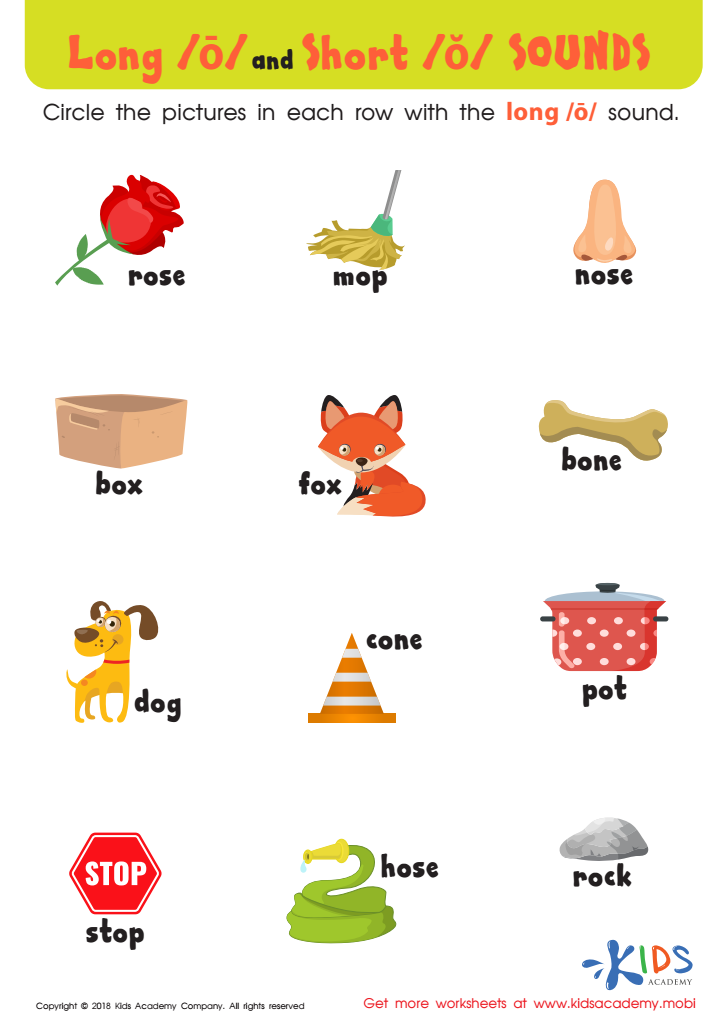

Reading: Long O and Short O Sounds Worksheet
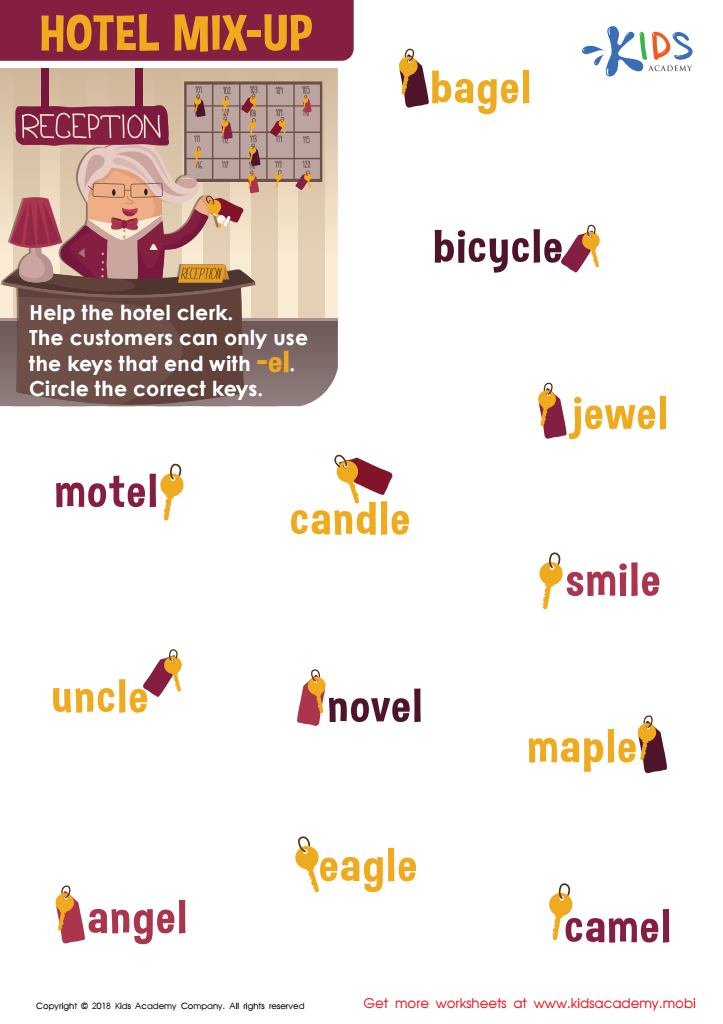

Hotel Mix-up Worksheet


Short Vowels /e/, /i/, and /u/ Worksheet
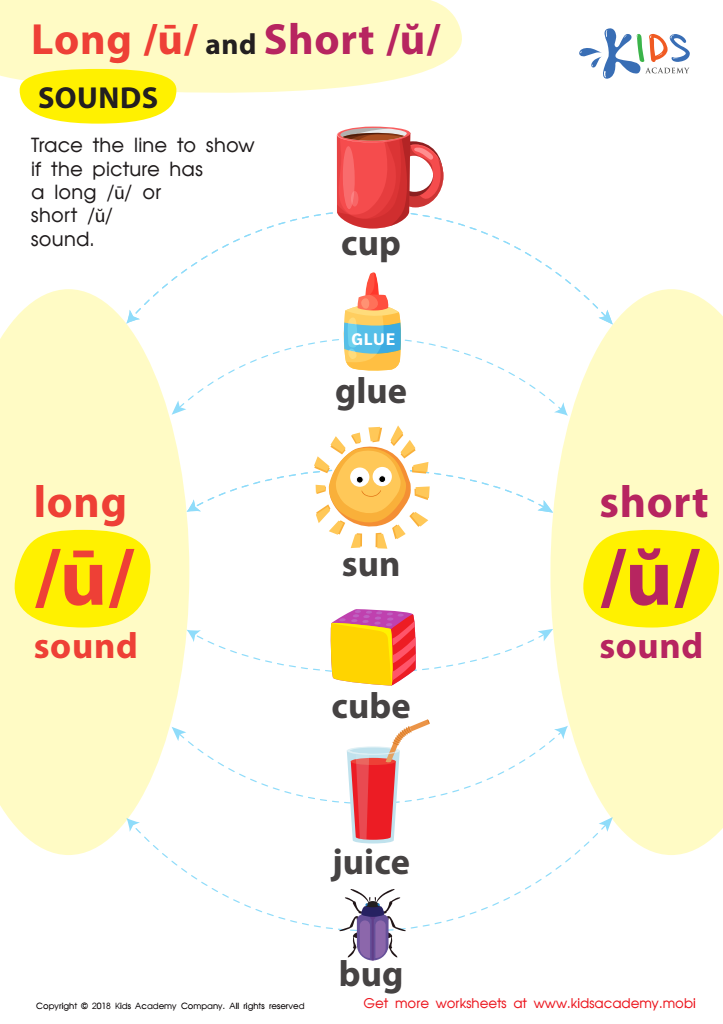

Reading: Long U and Short U Sounds Worksheet


Long Vowel Maze /o/ and /i/ Worksheet
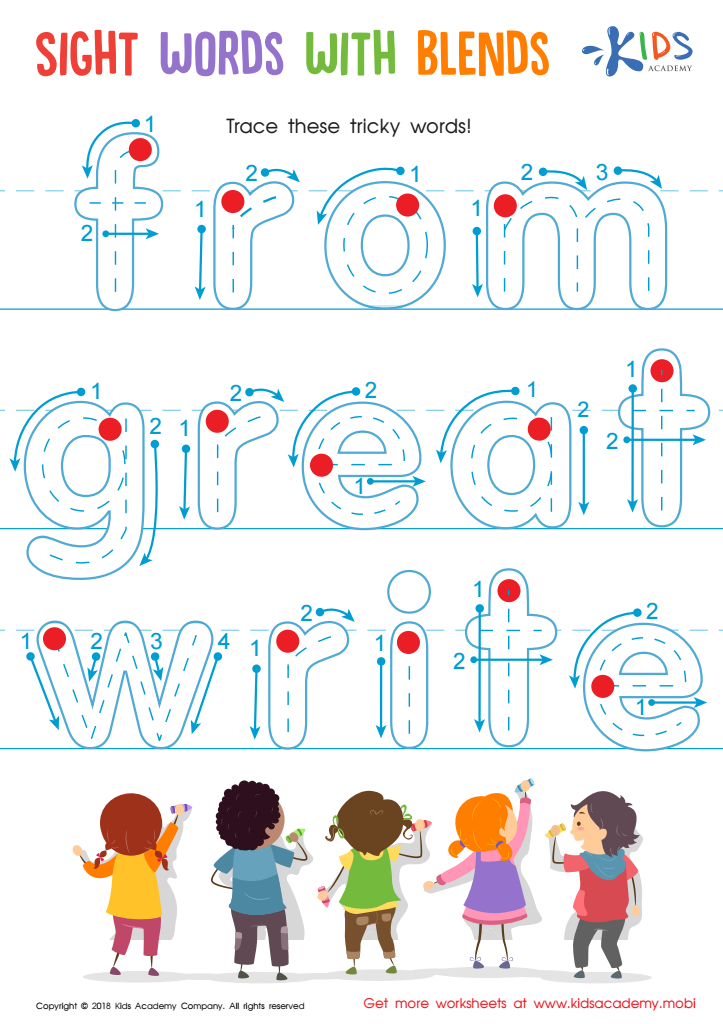

Sight Words with Blends Worksheet
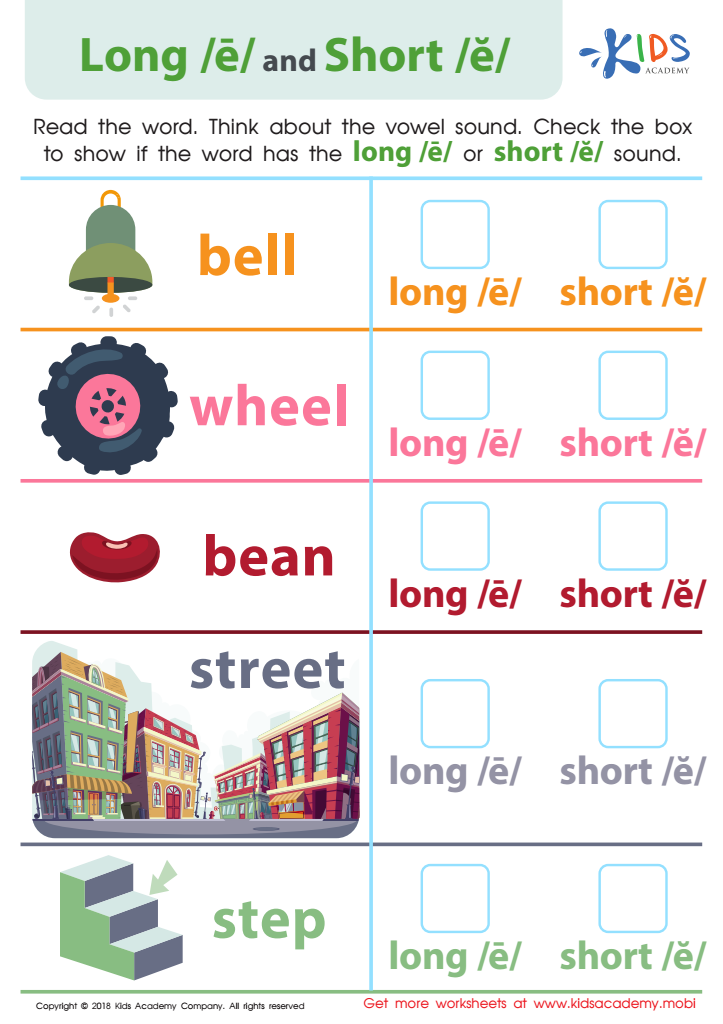

Reading: Long E and Short E Worksheet
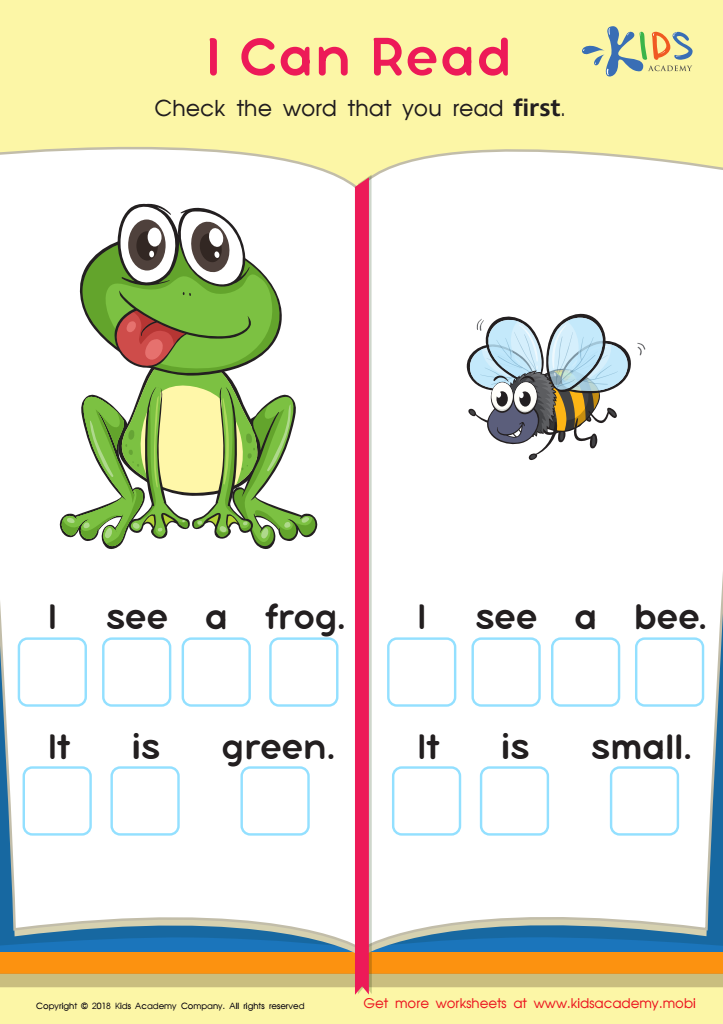

I Can Read Worksheet
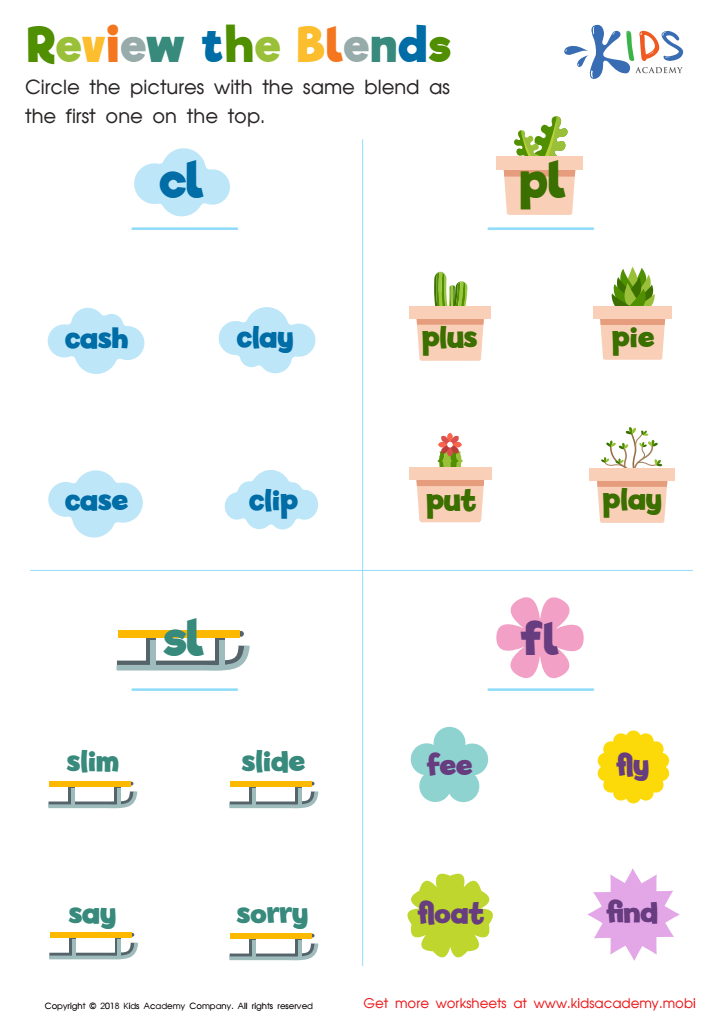

Review the Blends Worksheet
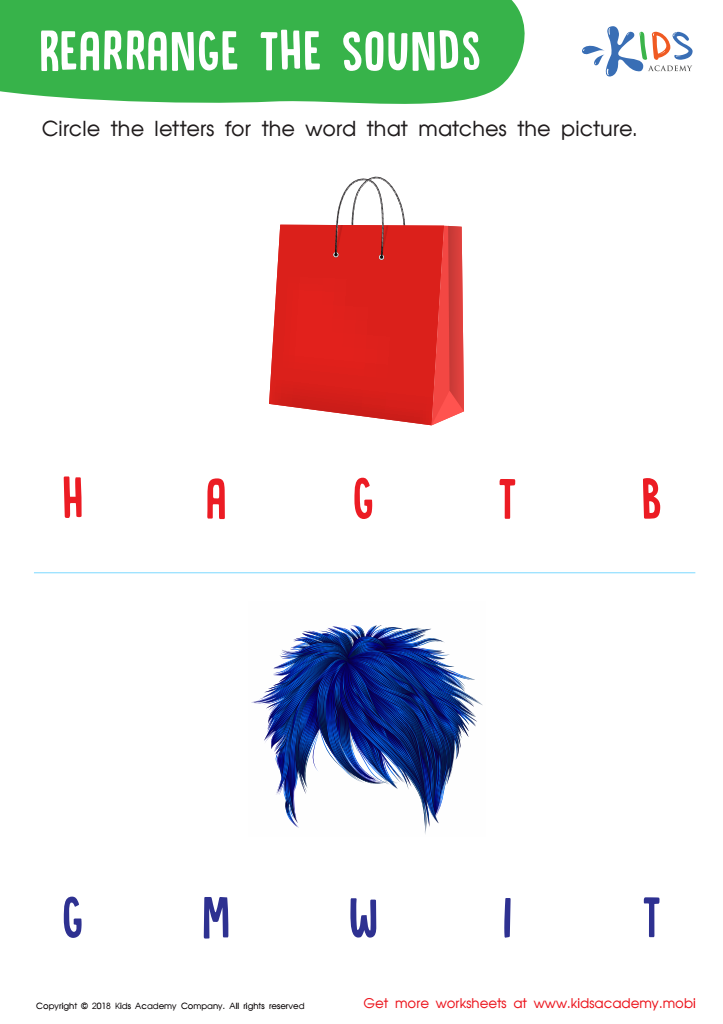

Rearrange the Sounds Worksheet
Reading comprehension and normal letter recognition in children aged 6-8 are critical components of their early education that significantly impact their academic and personal development. During these formative years, children transition from learning to read to reading to learn. This transition is foundational for their overall literacy development.
Firstly, good reading comprehension skills allow children to understand, interpret, and engage with the text they read. This understanding is crucial not just for language arts but across all subjects. For example, in math, word problems often require comprehension to solve accurately. Therefore, fostering strong reading skills supports academic success across the board.
Normal letter recognition is equally important, as it is the basis for reading fluency and proficiency. Children who struggle with recognizing letters and associating them with their corresponding sounds may find it challenging to decode words. This can lead to difficulties in reading comprehension and a lack of confidence in their reading abilities, potentially causing them to fall behind their peers.
For parents and teachers, paying close attention to these skills means addressing any issues early, thus providing targeted support such as phonics instruction or one-on-one reading sessions. Igniting a passion for reading through stories and interactive reading activities can also build a positive, long-lasting relationship with books, fostering continued academic growth and a love for lifelong learning.
 Assign to My Students
Assign to My Students
















